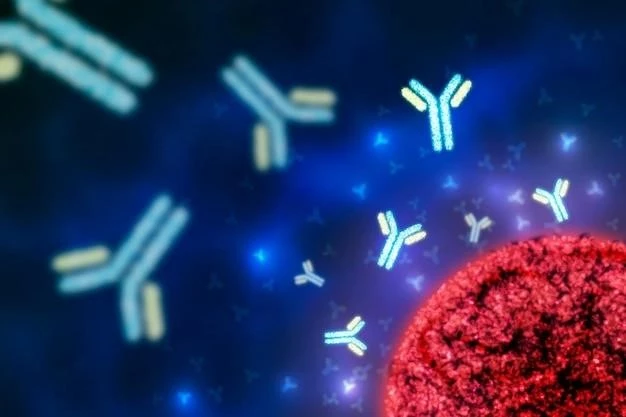Disease Advisory ― Immunodeficiency, Primary
Primary immunodeficiency is a serious condition characterized by genetic mutations leading to antibody deficiency and compromised immune system. Individuals with this disorder experience recurrent infections due to impaired immune response. Understanding the clinical manifestations and increased susceptibility to immune system disorders is crucial. Seek support and resources for optimal management.
I. Introduction to Primary Immunodeficiency
Primary immunodeficiency is a complex immunological disorder caused by genetic mutations that compromise the immune system’s ability to fight infections. This condition results in increased susceptibility to various pathogens due to defects in immune function, specifically in B cells, T cells, and other white blood cells. It is crucial to understand the underlying mechanisms of primary immunodeficiency, as it can lead to recurrent infections and other immune system disorders. Early detection and proper management are essential in addressing this hereditary condition. Consult with healthcare professionals to develop a personalized treatment plan to support immune function and overall well-being.
II. Understanding Antibody Deficiency
Antibody deficiency is a hallmark of primary immunodeficiency, where the immune system lacks the ability to produce an adequate amount of antibodies to combat infections effectively. This deficiency can be attributed to genetic factors affecting the development and function of B cells, crucial in antibody production. It is important to recognize the role of antibodies in fighting infections and the implications of their deficiency in compromising the immune response. Individuals with this condition may experience recurrent infections and increased susceptibility to various pathogens. Consult with a healthcare provider to understand the impact of antibody deficiency on your immune system and explore appropriate management strategies to enhance immune function.
III. Genetic Mutations and Immunological Disorders
Genetic mutations play a critical role in primary immunodeficiency, leading to various immunological disorders affecting the immune system’s ability to ward off infections. These mutations can impact the function of immune cells, such as B cells and T cells, essential for a robust immune response. Understanding the genetic factors contributing to immunodeficiency is vital in diagnosing and managing the condition effectively. It is essential to seek genetic testing and counseling to identify specific mutations and their implications for immune function. Collaborate with healthcare professionals to develop a personalized treatment plan tailored to address your unique genetic profile and optimize immune health.
IV. Susceptibility to Infections in Primary Immunodeficiency
Individuals with primary immunodeficiency have an increased susceptibility to infections due to the compromised immune system’s inability to effectively combat pathogens. This susceptibility arises from genetic mutations affecting immune cell function, leading to recurrent infections and prolonged illness. It is crucial to recognize the signs of infection promptly and seek medical attention to prevent complications. Implementing preventive measures, such as vaccination and good hygiene practices, can help reduce the risk of infections. Consult with healthcare providers to develop a comprehensive management plan to address your susceptibility to infections and support immune health.
V. The Role of Lymphocytes in Immune Function
Lymphocytes, including B cells and T cells, play a crucial role in the immune system’s function in primary immunodeficiency. B cells are responsible for producing antibodies that target pathogens, while T cells contribute to coordinating the immune response and eliminating infected cells. Understanding the functions of these lymphocytes is essential in managing immune system disorders. Genetic mutations affecting B and T cell development can lead to compromised immune function, resulting in increased susceptibility to infections. Consult with healthcare professionals to assess your lymphocyte function and develop targeted strategies to support immune health and enhance immune responses.
VI. Recurrent Infections and Compromised Immune System
Recurrent infections are common in primary immunodeficiency, indicating a compromised immune system’s ability to protect the body from pathogens. Genetic mutations impacting immune cell function, particularly B cells and T cells, contribute to recurrent infections and prolonged illness. It is crucial to monitor and manage these infections promptly to prevent complications. Adopting lifestyle changes, such as maintaining good hygiene practices and avoiding exposure to sick individuals, can help reduce the risk of recurrent infections. Work closely with healthcare providers to develop a comprehensive treatment plan that addresses your compromised immune system and supports overall well-being.
VII. Autoimmune Diseases and Primary Immunodeficiency
Individuals with primary immunodeficiency are at an increased risk of developing autoimmune diseases, where the immune system mistakenly attacks the body’s cells and tissues. The interplay between compromised immune function and autoimmune conditions can lead to complex health challenges. It is essential to understand the triggers and symptoms of autoimmune diseases and their impact on primary immunodeficiency. Collaborate with healthcare professionals to monitor and manage both conditions effectively. Adopting a healthy lifestyle, including regular exercise and balanced nutrition, can support immune function and mitigate the risk of autoimmune diseases. Stay informed about the relationship between primary immunodeficiency and autoimmune disorders to enhance your overall well-being.
VIII. Clinical Manifestations of Primary Immunodeficiency
Primary immunodeficiency presents with various clinical manifestations, including recurrent infections, slow wound healing, and susceptibility to opportunistic pathogens. These manifestations stem from genetic mutations affecting immune cell function and compromising the body’s defense mechanisms. It is important to recognize the signs and symptoms of primary immunodeficiency early to prevent complications. Regular monitoring and prompt management of clinical manifestations are vital in maintaining optimal immune health. Consult with healthcare providers to address specific symptoms and develop a personalized treatment plan to manage primary immunodeficiency effectively.
IX. Increased Susceptibility to Immune System Disorders
Primary immunodeficiency leads to an increased susceptibility to various immune system disorders due to genetic mutations affecting immune cell function. Individuals with this condition may experience a higher risk of autoimmune diseases, allergic reactions, and chronic infections. Understanding the relationship between primary immunodeficiency and other immune system disorders is crucial in providing comprehensive care. It is important to undergo regular medical evaluations to monitor immune system function and detect any potential complications early. Collaborate with healthcare professionals to address increased susceptibility effectively and optimize overall immune health.
X. Genetic Factors and Hereditary Conditions
Primary immunodeficiency is primarily influenced by genetic factors, resulting in hereditary conditions that affect immune system function. These genetic factors can lead to abnormalities in immune cell development and predispose individuals to recurrent infections and immune system disorders. Understanding the genetic basis of primary immunodeficiency is essential for accurate diagnosis and personalized treatment. Genetic testing can help identify specific mutations contributing to the condition and guide targeted interventions to support immune health. Collaborate with genetic specialists and healthcare providers to explore the hereditary aspects of primary immunodeficiency and implement appropriate management strategies.
XI. Impact of B Cell and T Cell Dysfunction
B cells and T cells play vital roles in the immune system, and dysfunction in these cells can significantly impact primary immunodeficiency. Defective B cells may result in decreased antibody production, while impaired T cells can affect immune response coordination. Understanding the implications of B cell and T cell dysfunction is essential in managing primary immunodeficiency. Collaboration with healthcare providers is crucial to evaluate the impact of these dysfunctions on immune health and implement targeted interventions. Explore personalized treatment options to support B cell and T cell function, enhance immune responses, and improve overall well-being.
XII. Novel Therapies for Primary Immunodeficiency
Emerging therapies offer hope for individuals with primary immunodeficiency by targeting specific genetic mutations and immune system defects. Novel treatments, such as gene therapy and immune modulation, aim to restore immune function and reduce susceptibility to infections. It is essential to stay informed about advancements in primary immunodeficiency research and discuss potential novel therapies with healthcare providers. Consider participating in clinical trials to access innovative treatments and contribute to the development of cutting-edge therapies. Collaborate with specialists to explore personalized approaches that may offer new possibilities for improving immune health and quality of life.
XIII. Support and Resources for Individuals with Primary Immunodeficiency
Individuals with primary immunodeficiency can benefit from a range of support services and resources to help manage their condition effectively. Support groups, online forums, and educational materials offer valuable information and emotional support. Connecting with other individuals facing similar challenges can provide comfort and shared experiences. Healthcare providers, patient advocacy organizations, and specialized clinics are excellent sources of guidance and assistance. Take advantage of these resources to stay informed, access optimal care, and enhance your overall well-being. Remember that you are not alone in your journey with primary immunodeficiency, and there are numerous avenues for support available to you.

XIV. Preventive Measures and Lifestyle Recommendations
Individuals with primary immunodeficiency can adopt preventive measures and lifestyle recommendations to minimize the risk of infections and support immune health. Regular handwashing, maintaining good hygiene practices, and avoiding close contact with sick individuals can help reduce exposure to pathogens. Ensuring proper nutrition, regular exercise, and adequate rest are essential for overall well-being and immune function. Stay up to date with recommended vaccinations and follow your healthcare provider’s guidance closely. Consider consulting with a registered dietitian or immunologist to develop a tailored plan that aligns with your specific needs. By taking proactive steps and implementing healthy habits, you can strengthen your immune system and optimize your quality of life.
XV. Future Directions in Research and Treatment
Exciting advancements in research offer promising avenues for the future of primary immunodeficiency treatment. Ongoing studies focus on novel therapies, personalized medicine approaches, and gene editing techniques to address the underlying genetic mutations and immune system deficiencies. Stay updated on the latest scientific developments and clinical trials that may provide innovative treatment options. Discuss emerging research findings with your healthcare team to explore potential new interventions tailored to your unique needs. By staying informed and engaging with cutting-edge research, you can actively contribute to shaping the future of primary immunodeficiency care and potentially access groundbreaking treatments for improved immune health.
XVI. Conclusion
In conclusion, primary immunodeficiency is a complex condition characterized by genetic mutations that compromise the immune system, leading to increased susceptibility to infections and immune system disorders. Understanding the role of lymphocytes, the impact of genetic factors, and the importance of personalized treatment is crucial for managing this disorder effectively. By embracing preventive measures, seeking support and resources, and staying informed about advancements in research and treatment, individuals with primary immunodeficiency can navigate their journey with resilience and optimize their immune health. Remember, you are not alone, and with proper care and diligence, you can lead a fulfilling life despite the challenges posed by primary immunodeficiency.
